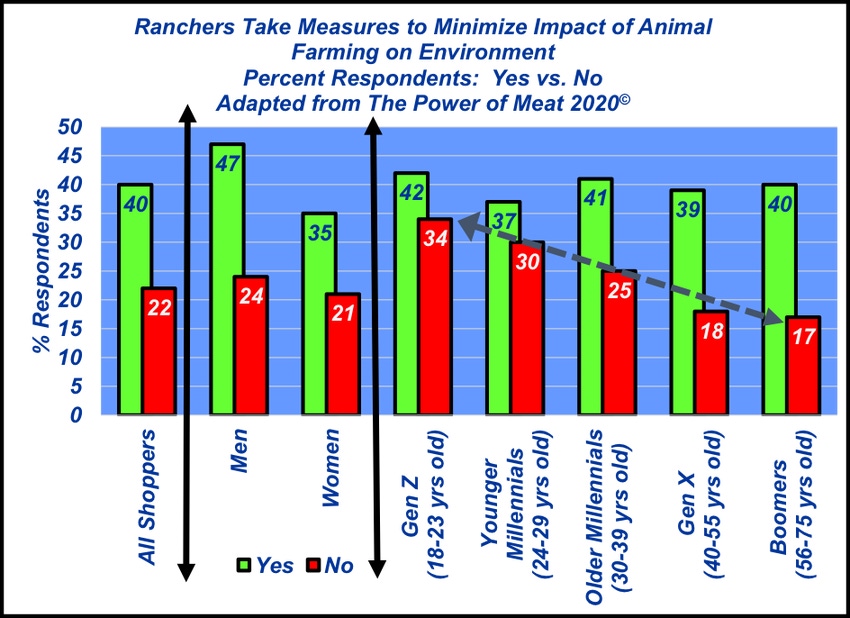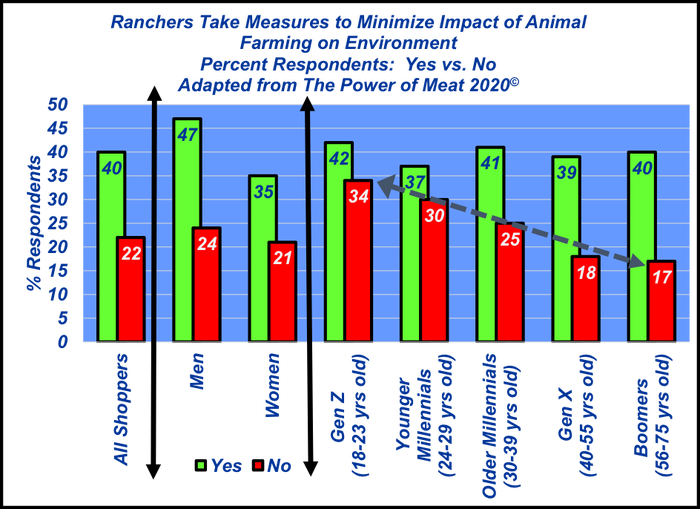Power of Meat – Consumer perspectives on the environment
The industry has work ahead to maintain loyalty among younger shoppers when it comes to environmental concerns.
July 23, 2020

This column has provided several snapshots of key results from the Power of Meat 2020 study. The annual report is a comprehensive look into the various trends driving consumer behavior and perspectives. Accordingly, the study is subtitled, “An in-depth look at meat through the shopper’s eyes.” The report is published by FMI (The Food Industry Association) and the Foundation for Meat & Poultry Research & Education, prepared by 210 Analytics LLC and primarily sponsored by Cryovac (a division of Sealed Air).
The first column focused on basic trends in terms of what’s important to shoppers. Most notably, the brand/consumer relationship is becoming more important with time. That has implications throughout the supply chain.
Meanwhile, last week’s column, the second in the series, highlighted the importance of transparency with a majority of shoppers desiring more information about how/where livestock were raised and processed. A majority, 55%, of consumers believe that meat and poultry brands should provide that; meanwhile, 68% believe it’s important for grocery stores to provide that information.
That brings us to this week’s illustration. Consumers provided feedback with respect to the statement: “Ranchers take measures to minimize impact of animal farming on environment.”

In aggregate, only 40% of shoppers agreed with that statement while 22% responded negatively. More significant, though, are the responses broken out by category.
Gender: Men were much more likely than women to respond favorably, 47% vs 35%, respectively.
Age: The favorable response was fairly consistent across all age groups. However, the negative response rate consistently rises with each step down in age group. The net outcome being Gen Z (18-23 years old) respondents were twice as likely to disagree with the statement versus Boomers (56-75 years of age): 34% vs 17%, respectively.
Based on those results, the industry has work to ahead to maintain loyalty among younger shoppers when it comes to environmental concerns. As noted last week, greater information about how/where livestock are raised and processed is increasingly important to shoppers – and that information will need to include assurances of environmental stewardship and/or sustainability. Such documentation from the farm or ranch all the way to the end product will progressively need to become the norm to earn consumer trust and dollars.
Nevil Speer is based in Bowling Green, Ky. and serves as director of industry relations for Where Food Comes From (WFCF). The views and opinions expressed herein do not necessarily reflect those of WFCF or its shareholders. He can be reached at [email protected]. The opinions of the author are not necessarily those of beefmagazine.com or Farm Progress.
About the Author(s)
You May Also Like




.png?width=300&auto=webp&quality=80&disable=upscale)
